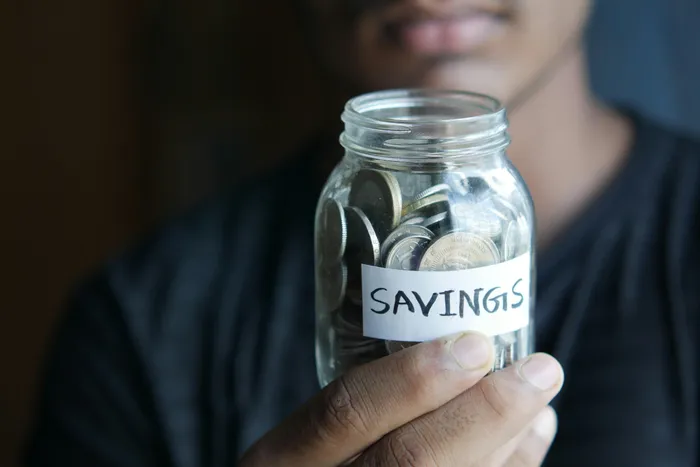This savings month, pay yourself first

Discover the importance of saving and learn practical strategies to build your financial future this National Savings Month.
Image: Unsplash
When managing your money, it’s easy to confuse saving with investing. While the two are closely related, they play different roles in your financial journey. Saving is about setting aside money for short-term needs or emergencies, while investing is about growing your wealth over time. Both are important, but one must come first: saving.
The habit of saving
This July, as we observe National Savings Month in South Africa, it’s the perfect time to reflect on the foundation of all financial progress, the habit of saving. Think of saving as paying yourself first. Before you pay any bills or cover any expenses, prioritise putting something away for your future.
South Africa remains one of the countries with the lowest savings rates globally- the gross savings rate for South Africa is just 13.7% (government savings, business, and households).
Actual household savings as a percentage of disposable income in the first quarter of 2025 showed no savings, with the average household relying on borrowing.
This is perhaps unsurprising in the face of rising living costs and economic pressures. However, the root of the issue is often a lack of financial education and practical guidance. Many South Africans simply don’t know where or how to start.
Consider everyday financial disruptions: your fridge stops working, your car needs new tyres, or worse, you suddenly lose your job. Without a financial cushion, many people turn to credit cards, overdrafts, or delay essential payments, all of which come with consequences. The solution is simple in principle but challenging in practice: build an emergency fund.
An emergency fund
One of the first things to set up when you save is an emergency fund. This is a separate pool of money set aside for life’s unexpected curveballs. Maybe you planned to service your car with your December bonus, but the need arises in September. That’s when your emergency fund steps in.
A solid rule of thumb is to save enough to cover at least three months of living expenses, ideally six. If your monthly costs are R10,000, that means building a fund of R30,000 to R60,000. Yes, it’s a daunting number if you’re starting from scratch, but the key is consistency. Even small amounts saved regularly can grow into something significant over time.
How do you start saving?
The first step is simple: create a budget. Whether you use an app, a spreadsheet or a notepad, the goal is the same: to understand where your money is going and to plan how to allocate it better. As the saying goes, ‘If you fail to plan, you are planning to fail.’ Budgeting empowers you to set priorities and make informed financial decisions.
When I meet with clients, some of my first questions are: “Do you have a budget?” and “Do you have emergency savings?” If the answer is no, we don’t talk about unit trusts or long-term investments yet. We start with the basics. Without a buffer for emergencies or clarity on your expenses, any investment plan is built on shaky ground.
Once your emergency fund is in place, you can shift your attention to other short-term goals like saving for a holiday, a new car, or school fees. Where you keep your savings matters too. It should be in a separate account from your day-to-day funds to avoid the temptation to dip into it. Some prefer a single savings account, while others like separate ‘buckets’ for different goals. Many banks now allow you to name your accounts and track progress towards targets, making saving feel more achievable and helping you stay clear on what you're saving for.
Notice deposits, where you need to give between 7 and 32 days’ notice before accessing your funds, can help instil discipline and give higher interest rates. However, at least part of your emergency fund should be instantly accessible for true emergencies.
One of the best ways to stay on track is to automate your savings, set up a debit order to pay towards your goal that goes off on payday, just like any other bill. If you wait until the end of the month to see what’s left over, chances are it will be nothing. Saving should be a non-negotiable, not an afterthought.
There’s also a psychological win in watching your savings grow. Knowing how long it took to build your emergency fund gives you pause before spending it impulsively. That sense of achievement can be incredibly motivating.
Of course, many people genuinely battle to cover their basic expenses. But others can find room to save by being more intentional about their spending. Small daily habits have a bigger impact than you might think. Take your daily takeaway cappuccino, which costs R35 a day, R1,050 a month, and R12,600 per year. Cut back to two a week and you save R770. But here’s the catch: it only counts if you move that money into your savings.
Start by setting realistic goals. Review your budget regularly, adjust when necessary, and stay the course. Saving isn’t about perfection — it’s about consistency and progress.
Having a financial buffer reduces stress and gives you more control over your life. This Savings Month, take that first step and commit to paying yourself first. Your future self will thank you.
* Coetzer is a financial adviser at Alexforbes.
PERSONAL FINANCE